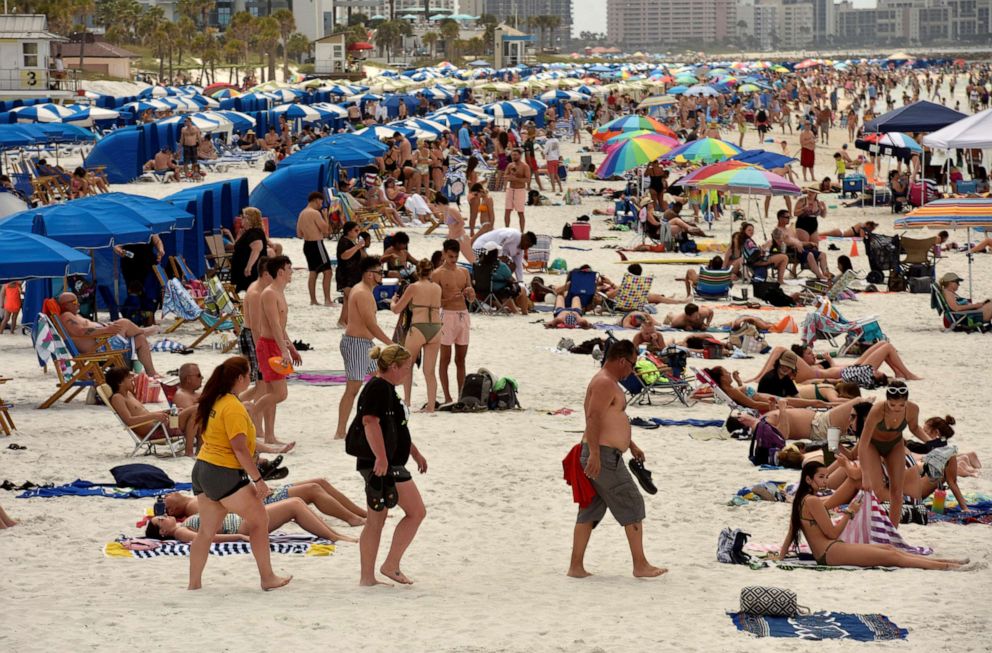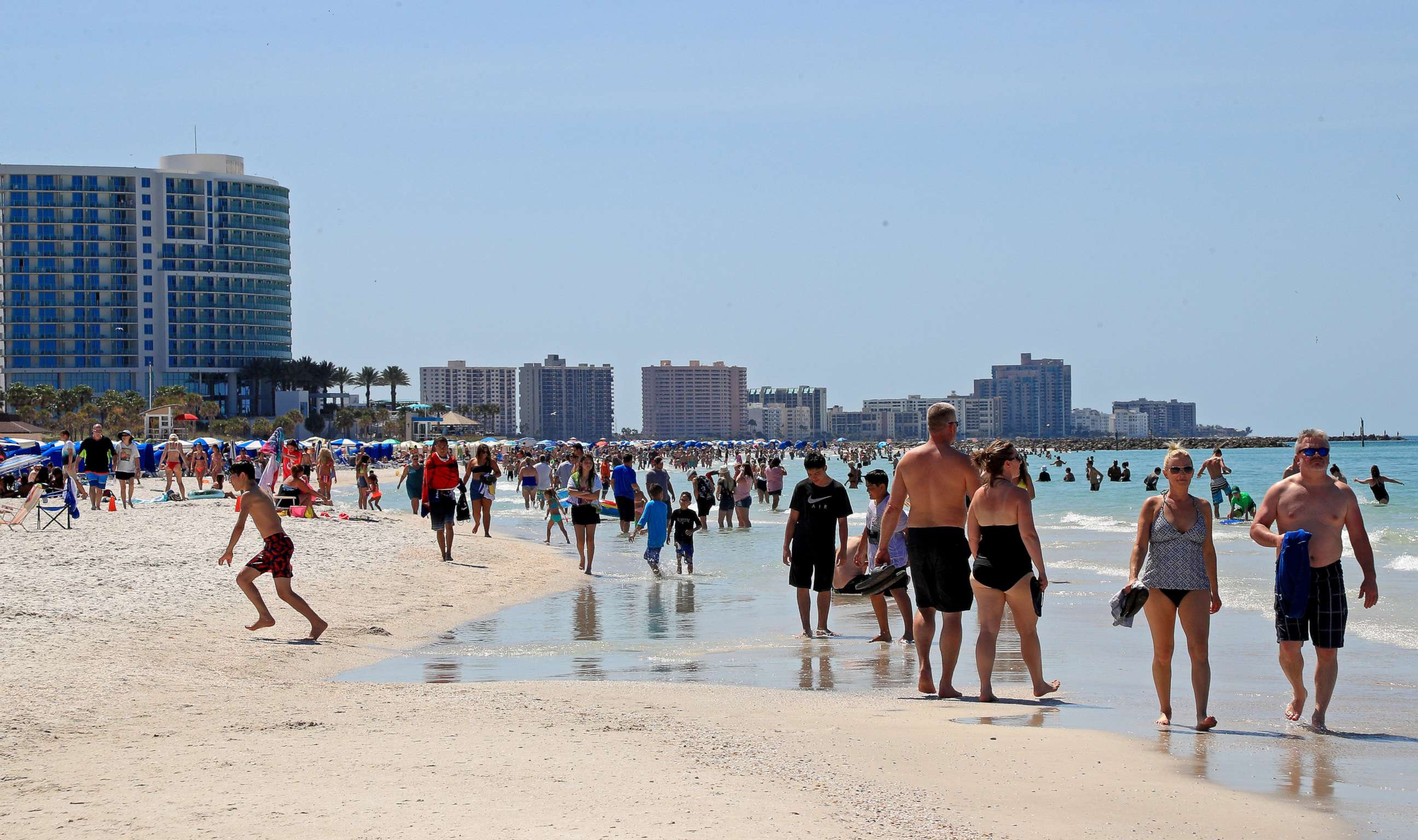Nearly 40% of those hospitalized with coronavirus are younger than 54: CDC
As many spring breakers are still seen ignoring social distancing on the beaches of Florida, the Centers for Disease Control and Prevention is saying more younger people than initially thought are getting seriously ill due to the novel coronavirus.
Data released Wednesday night by the CDC shows that of the 508 patients known to have been hospitalized in the U.S. for COVID-19, about 20% of those were ages 20 to 44 and another 18% were between the ages of 45 and 54.
However, COVID-19 is still significantly more dangerous in older patients, as 80% of deaths associated with coronavirus are adults over the age of 65.

Less than 1% of coronavirus deaths were among patients aged 20-54, and zero patients under the age of 19 have died from the virus, the CDC report said.
These numbers don't provide the full context of underlying medical conditions in these patients.
Tune into ABC at 1 p.m. ET and ABC News Live at 4 p.m. ET every weekday for special coverage of the novel coronavirus with the full ABC News team, including the latest news, context and analysis.

The World Health Organization declared COVID-19 a global pandemic on March 11. Globally, there are at least diagnosed 222,000 cases, and at least 9,100 reported deaths.
In the U.S., there are at least 9,412 diagnosed cases in all 50 states with at least 141 coronavirus-related deaths reported.

During a briefing Wednesday, the Trump administration implored millennials and young people to take social distancing seriously to help stop the spread of the coronavirus outbreak.
White House coronavirus response coordinator Dr. Deborah Birx said she was concerned about reports out of Italy and France that more young people than expected were in ICUs with complications from COVID-19.
"We have not seen any significant mortality in the children, but we are concerned about the early reports coming out of Italy and France," Birx said during a briefing Wednesday. "Even if it's a rare occurrence, it may be seen more frequently in that group, and be evident now."
What to know about Coronavirus:
- How it started and how to protect yourself: Coronavirus explained
- What to do if you have symptoms: Coronavirus symptoms
- Tracking the spread in the US and Worldwide: Coronavirus map




